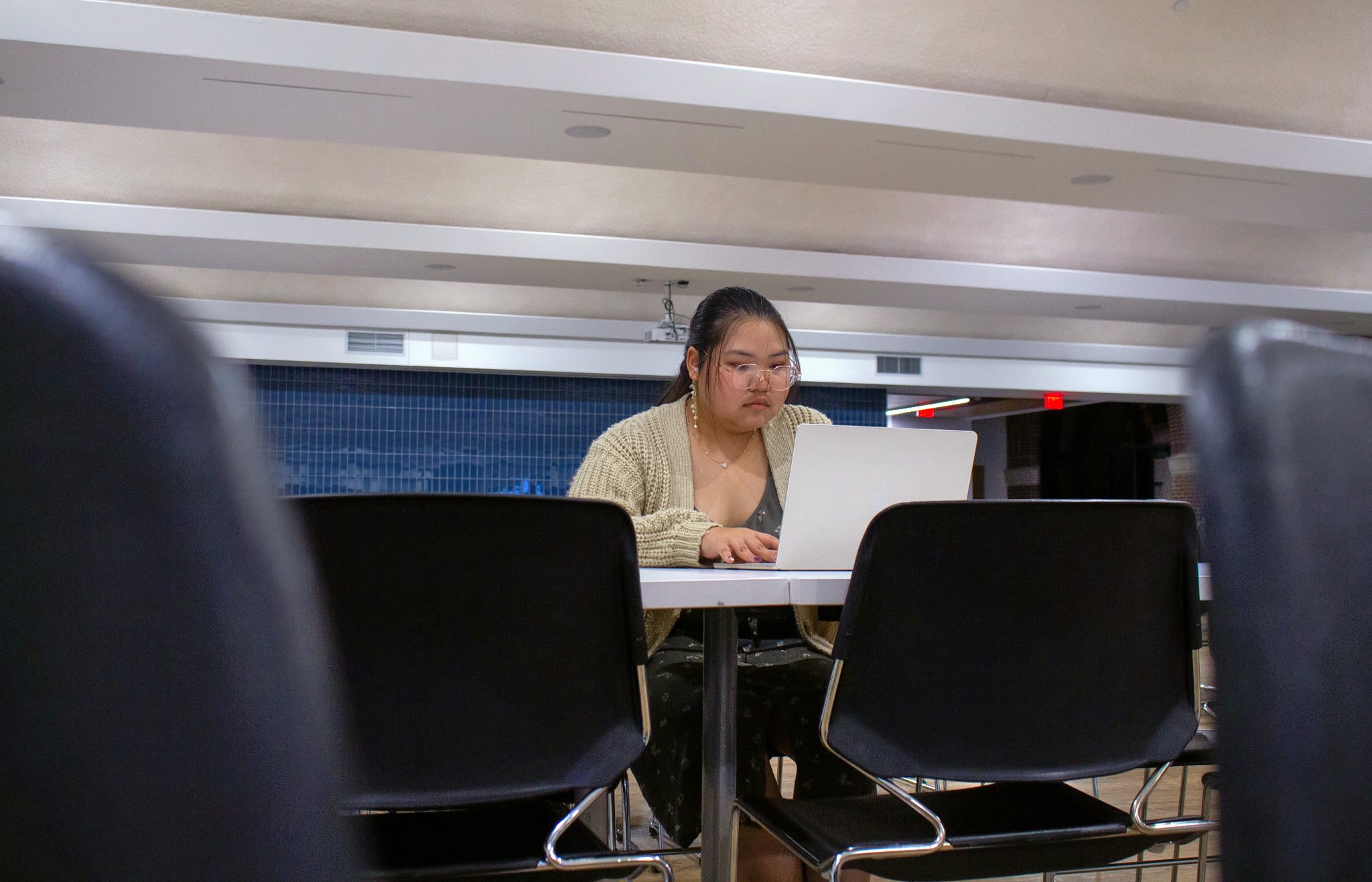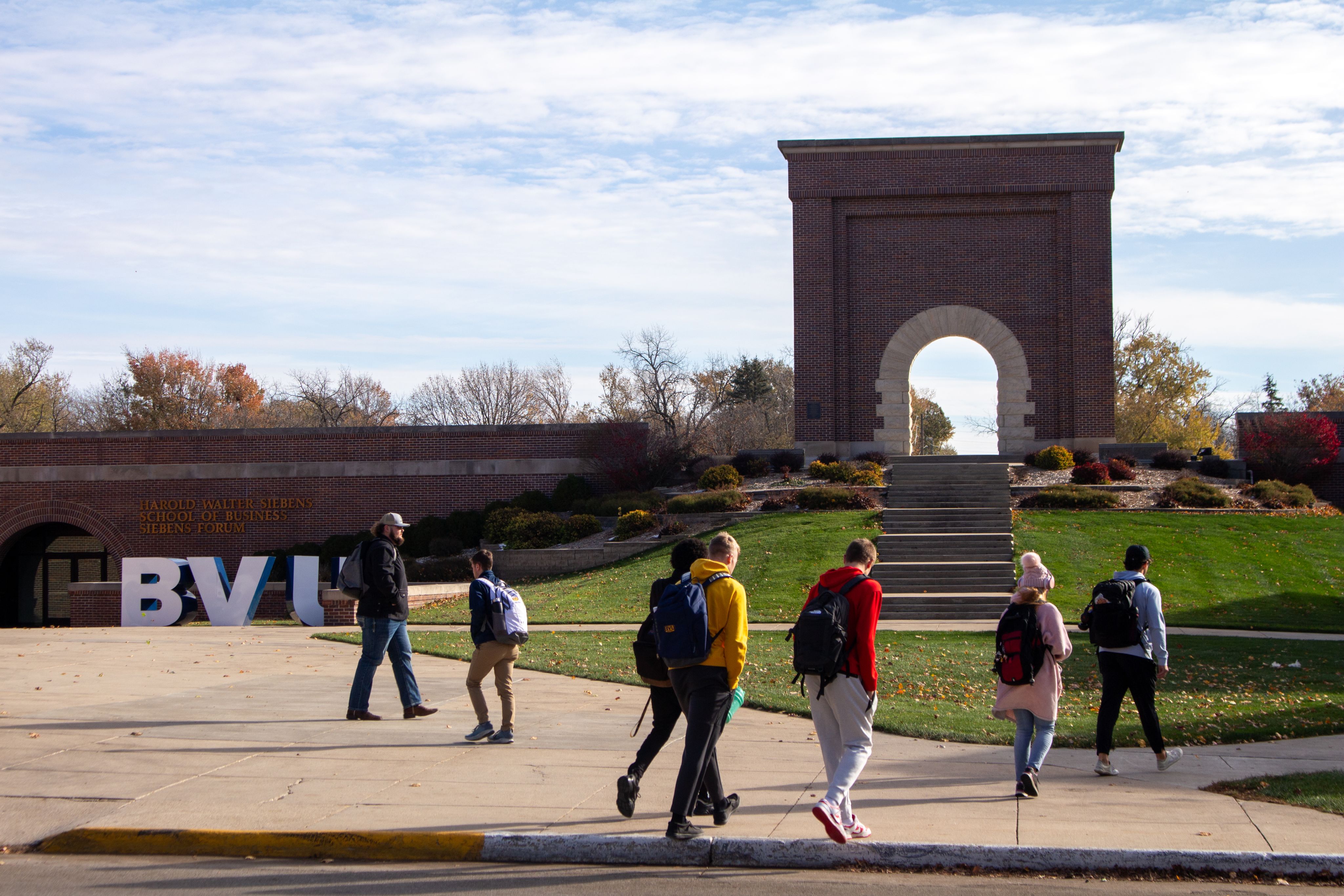Bidding Farewell and Looking Ahead: The EFS Program
Joceline Medina, Co-Editor in Chief

“I'm really grateful for the opportunity BVU has given me and the rest of the first-generation students. It’s nice to know that they care about first-generation students and that they have the scholarship to help us, and I'm sad that some people might not have this,” said Vianney Medina-Sanchez, a freshman elementary education student and Education for Service scholar, about the sudden decision to discontinue the EFS program, making her cohort the sixth and last.
Education for Service Scholars is a four-year developmental program that for almost six years, has supported local, first-generation college students in their transition to the unfamiliar territory of college, through the full coverage of tuition and regular support from a paired faculty advisor and cohort of other first-generation college students. In return, students served as volunteers in the Buena Vista County community for all four years.
While current EFS students and cohorts will not be affected by the program’s discontinuation, Medina-Sanchez was saddened that future first-generation college students would not be offered the same opportunities as her to succeed.
“I don't think I would have been successful without my peers and my advisors,” said Medina-Sanchez.


Yothaka Suksai, a junior corporate math major and member of the fourth cohort, shares the same sentiment for students in the same position as her.
“I just imagine myself,” Suksai said with tears forming in her eyes, as she reflected on the EFS programs’ impact on her transition to college. “Just thinking, not having that. It's sad. I feel really sorry for new coming people that they're not going to have that anymore.”
For Suksai, the EFS program has been invaluable in helping her build friendships — something she struggled with in high school, having moved to the U.S. from Thailand at 15.
“If I didn’t have EFS, I might've been my old self back in high school that had no friends and sat in the corner,” she said.
Current EFS scholars are anxious to know what BVU’s new plans are to support first-generation college students.
In an email announcing the program’s discontinuation, Vice President of Student Success, Dr. Jamii Claiborne, who was unavailable for an interview for this story, outlined the sources of support available to first-generation college students and other groups of students historically underserved by higher education, including a new grant program, named the Iowa Access Grant, that will fully cover the tuition of students who qualify. Requirements include being an Iowa resident enrolled as a full-time undergraduate student and having a high school GPA of 2.9 or higher. Students must also live on campus.
The purpose of the Iowa Access Grant, according to the email, is to expand access to education for students beyond Buena Vista County.

Photo by Kosuke Fukuda
Photo by Kosuke Fukuda
Among other sources of support available to first-generation college students is the BVU Mentorship Program, which was introduced last year.
The BVU Mentorship Program is geared toward first-year and transfer students who need additional support and guidance during their transition to college. Students are thoughtfully paired with an upperclassman mentor based on shared characteristics.
Since last year, the program has almost doubled in size, totaling a number of 30 mentees, with 28 of them being first-generation students.
“First-gen students may not have a sense of support from their parents or siblings or somebody who hasn't gone through this before for them. This can be a tricky college transition,” said Brianna Pounds, the site supervisor for BVU’s Mentorship Program.
Without the right support, first-generation college students run the risk of dropping out. In fact, a 2022 report released by the Education Data Initiative shows they have a 92.2% higher dropout rate than college students whose parents have attended college.
“Going into it [college] with no prior knowledge or knowing somebody that has gone through it to essentially assist you along the way, that's where the mentorship program comes in for peer mentoring,” said Pounds.
Pounds emphasized that the program is still in its piloting phase and is expected to grow in the future.
“It's evolving [the mentorship program] like it should, and we want to really tailor it to fit the needs of the students who want to be in this program,” added Pounds.
Medina-Sanchez acknowledges the challenges of being a first-generation college student and the importance of programs like these in supporting them in their transition to college. However, being a first-generation college student can also be rewarding as the first person in the family to go to college. Unlike Medina-Sanchez, her parents didn’t have the opportunity to pursue higher education.
“I see them [my parents] and I know that they could have done way more. I look at my dad, and I think he would have been so good at business, and my mom, she regrets not becoming a nurse,” Medina-Sanchez said. “So, I like to think of being a first-generation as pursuing your parents' dreams that they were not able to have.”
“Being a first-generation student, to me, it's beautiful,” she added.
Undoubtedly, many current EFS students are disheartened by the discontinuation of the EFS program that has served them for so long. As emphasized in the email, BVU’s commitment to first-generation students’ support and success is assured to remain.
